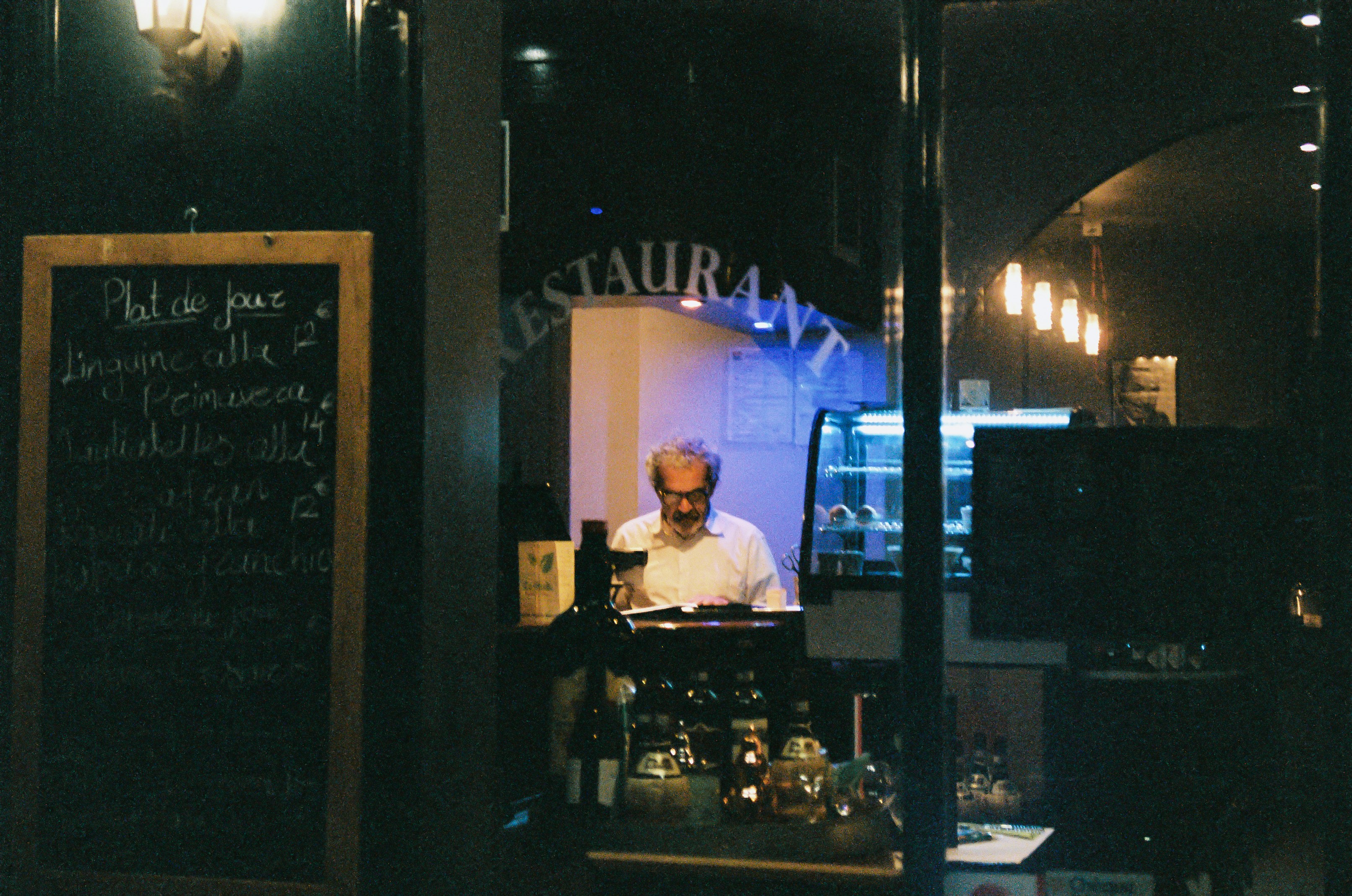The restaurant industry encompasses a wide range of roles, each critical to the operation’s success, from direct food preparation and service to behind-the-scenes management and support.
The diversity in roles reflects the complexity of running a restaurant, ensuring quality food and service, maintaining financial health, and complying with regulatory requirements.
While it’s challenging to quantify the number of distinct roles due to variations across different types of restaurants, here’s an overview of the key categories and examples of roles within them:
Front of House Roles
Restaurant staff are the masters of charm, communication, and multitasking, juggling tasks with ease while guiding guests through the menu with flair.
- Host/Hostess: Manages reservations and seating, greeting and escorting guests to their tables.
- Server/Waitstaff: Takes orders, serves food and drinks, and ensures guests have a pleasant dining experience.
- Bartender: Prepares alcoholic and non-alcoholic beverages, interacts with guests at the bar, and may also serve food.
- Busser: Clears tables, assists in setting tables, and supports the waitstaff.
- Sommelier: Specializes in wine service and pairing, often found in fine dining establishments.
Back of House Roles
The back-of-house staff are masters of leadership and have very good organizational skills, according to oysterlink.com.
- Executive Chef: Oversees the kitchen’s creative direction, menu development, and often the business aspects of the kitchen.
- Sous Chef: The executive chef’s second-in-command, managing the kitchen’s daily operations and supervising staff.
- Line Cook: Prepares specific types of dishes along a line in the kitchen, with each cook responsible for a particular station.
- Pastry Chef: Specializes in desserts, pastries, and baked goods.
- Dishwasher: Responsible for cleaning dishes and kitchen utensils, and often helps with general kitchen cleanup and prep work.
Management Roles
Managers are individuals who possess the abilities, skills, and knowledge to perform tasks with the help of other people.
- Restaurant Manager: Oversees the entire restaurant operation, including staff management, customer satisfaction, financial management, and compliance with health and safety regulations.
- General Manager (GM): Similar to a restaurant manager but with a focus on higher-level operational decisions, often overseeing multiple locations or higher-end establishments.
- Kitchen Manager: Specifically manages the back-of-house operations, including kitchen staff, food purchasing, and inventory management.
Support and Administrative Roles
Do everything to make the guest feel satisfied! That leads to success, and the door behind the restaurant leads us to the administration of the restaurant.
- Human Resources (HR) Manager: Manages hiring, training, employee relations, and compliance with labor laws.
- Marketing Manager: Develops and implements strategies to promote the restaurant, manage social media and handle public relations.
- Accountant/Financial Analyst: Manages the restaurant’s finances, including budgeting, payroll, and financial reporting.
Specialized and Emerging Roles
To answer the question of what lies beyond the hill when we talk about restaurants, there are also some fun facts: guests of the restaurant "Alchemist" in Denmark are ready to pay more than 500 euros for a table reservation, while a reservation combined with wine at the sommelier's table amounts to more than 1,800 euros.
- Food Safety Manager: Ensures compliance with food safety standards and regulations.
- Technology Specialist: Manages the restaurant’s IT needs, including point of sale systems, online reservation systems, and any tech-based customer service platforms.
- Sustainability Coordinator: Focuses on implementing eco-friendly practices within the restaurant, from sourcing to waste management.
Emotions truly are and will be behind the scenes in diverse roles in the restaurant industry. And what are these must-have emotions?
Creativity and inspiration
Can we imagine a world with recipes based on data and algorithms? Why not!
But the inspiration drawn from personal experiences, the natural world, and cultural heritage—the soul-stirring creativity that leads to groundbreaking culinary art is uniquely human!
Sensory Perception and Adaptation
Chefs rely on their senses to adjust dishes, balancing flavors and textures in ways that resonate with diners.
Emotional Connection
The emotional connection a chef has with their food, and the ability to convey stories, memories, and feelings through their dishes, is something that cannot be replicated.
Food is deeply personal and cultural, and the best chefs infuse their creations with meaning that resonates on an emotional level with diners.
Intuition and Instinct
Much of cooking at the highest level involves intuition and instinct—knowing just when a dish is perfect or sensing what subtle adjustments it needs.
The heart and soul of great cooking—the passion, creativity, and human connection—remain the domain of human chefs.
Great chefs bring more to the table than just technical skill; they bring part of themselves, making each dish a unique expression of their artistry and humanity.
Conclusion
Let me ask AI how it would choose a restaurant:
"f I were human, choosing the first restaurant to visit would depend on personal interests, curiosity about certain cuisines, and perhaps the desire for a unique dining experience. Given the vast diversity of global cuisines and the allure of trying something new and acclaimed, I might be drawn to a place that combines cultural heritage with culinary innovation.”
Ok, thanks. Let us just say that “one cannot think well, love well, or sleep well if one has not dined well.” Virginia Woolf



